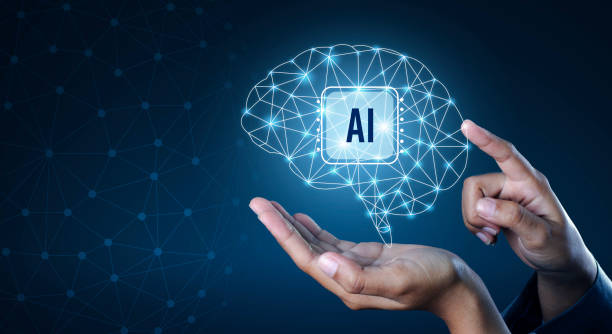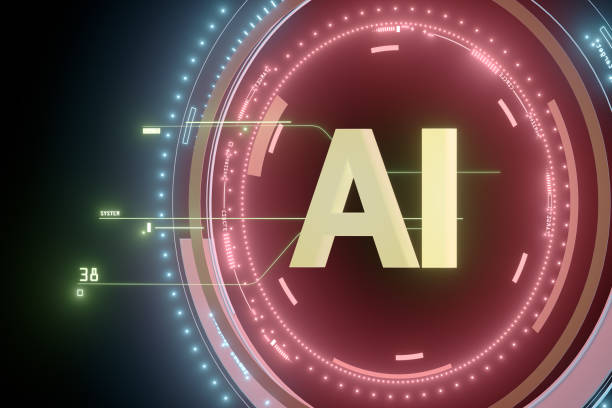What is Artificial Intelligence and What is its Impact on the Job Market?
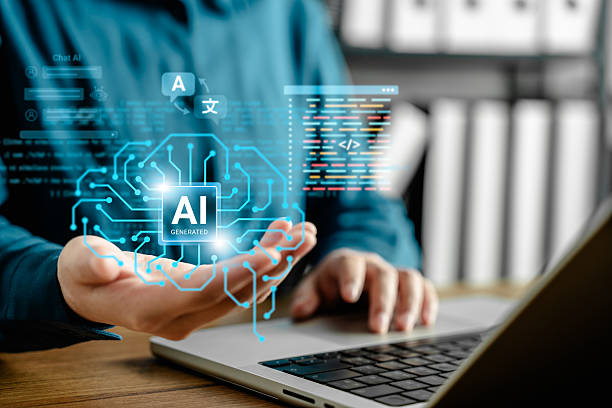
Artificial Intelligence (AI) is a branch of computer science that focuses on building machines capable of performing tasks that typically require human intelligence.
These tasks include learning, reasoning, problem-solving, language understanding, and pattern recognition.
The impact of artificial intelligence on the job market is very broad, creating both opportunities and challenges.
On one hand, AI can automate many repetitive and routine tasks, leading to increased productivity and reduced costs for companies.
This can lead to the elimination of some jobs, especially those involving manual labor and simple information processing tasks.
On the other hand, AI also creates new job opportunities.
With the development and implementation of AI systems, the demand for specialists in fields such as machine learning, data science, software engineering, and robotics is increasing.
Additionally, AI can help create new jobs in industries like healthcare, transportation, and education.
#Artificial_Intelligence is rapidly advancing, and the career future of artificial intelligence will be accompanied by extensive changes.
Overall, the impact of artificial intelligence on the job market is a complex issue that requires careful consideration and planning.
To benefit from the opportunities offered by AI and mitigate its challenges, individuals need to learn new skills, and companies must adapt their strategies to this new technology.
The career future of artificial intelligence necessitates acquiring new skills.
Is your current e-commerce website design causing you to lose customers and sales?
Rasaweb is your solution with modern and user-friendly e-commerce website designs!
✅ Significant increase in conversion rates and sales
✅ Strong branding and building customer trust
⚡ Get a free consultation for e-commerce website design from Rasaweb!
Jobs at Risk and New Jobs in the Age of Artificial Intelligence
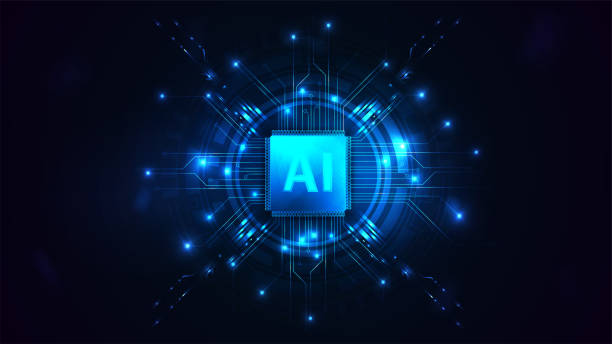
With the advancement of artificial intelligence, some jobs are at greater risk of automation.
These jobs primarily involve repetitive, routine tasks and simple information processing.
For example, professions such as telephone operator, data entry clerk, taxi driver, and production line worker may be significantly impacted.
Conversely, artificial intelligence also creates new job opportunities.
These jobs are primarily in fields such as machine learning, data science, software engineering, robotics, and cybersecurity.
For instance, the demand for data scientists, AI engineers, robotics developers, and cybersecurity specialists is increasingly growing.
The career future of artificial intelligence will create a new job market.
Furthermore, artificial intelligence can help create new jobs in industries like healthcare, transportation, and education.
For example, AI can be used to develop new drugs, diagnose diseases, improve treatment methods, and provide personalized education.
The career future of artificial intelligence in healthcare is very bright.
To benefit from the opportunities offered by artificial intelligence, individuals need to learn new skills, and companies must adapt their strategies to this new technology.
These skills include technical skills such as programming, machine learning, and data science, as well as soft skills like critical thinking, problem-solving, and creativity.
The career future of artificial intelligence requires continuous learning and adaptation to changes.
The career future of artificial intelligence offers many opportunities for skilled individuals.
Skills Required for Success in the Age of Artificial Intelligence
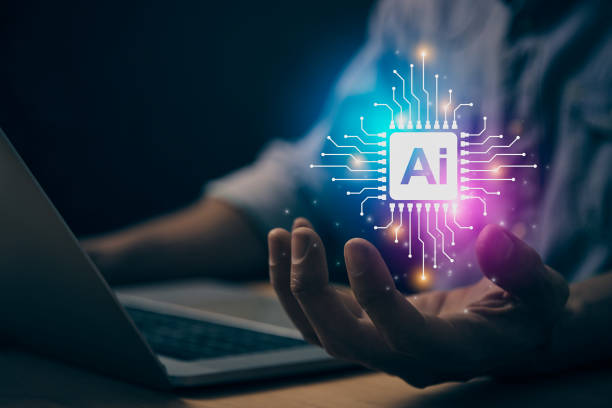
To succeed in the age of artificial intelligence, individuals need a combination of technical and soft skills.
Technical skills include knowledge and expertise in fields such as programming, machine learning, data science, robotics, and cybersecurity.
Soft skills include critical thinking, problem-solving, creativity, communication, and collaboration.
Here is a list of some of the most important skills required for success in the age of artificial intelligence:
Technical Skills:
- Programming (Python, Java, C++)
- Machine Learning
- Data Science
- Statistics and Probability
- Mathematics
- Software Engineering
- Robotics
- Cybersecurity
Soft Skills:
- Critical Thinking
- Problem-Solving
- Creativity
- Communication
- Collaboration
- Continuous Learning
- Adaptability
The table below examines the importance of various skills in AI recruitment:
| Skill | Importance |
|---|---|
| Machine Learning | Very Important |
| Data Science | Very Important |
| Programming | Very Important |
| Critical Thinking | Important |
| Problem-Solving | Important |
To acquire these skills, individuals can participate in online and in-person training courses, read relevant books and articles, and engage in practical projects.
It is also crucial for individuals to continuously update their knowledge and stay familiar with the latest advancements in artificial intelligence.
The career future of artificial intelligence depends on continuous learning.
The career future of artificial intelligence is very bright for those who possess the necessary skills.
How to Prepare for a Career in Artificial Intelligence?
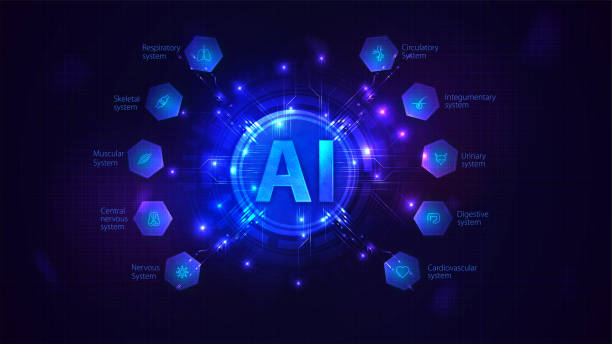
Preparing for a career in artificial intelligence requires a proactive and strategic approach.
Here are a few tips to help you in this regard:
1.
Develop Your Skills:
- Learn the technical skills required to work in artificial intelligence.
- Strengthen your soft skills, such as critical thinking, problem-solving, and creativity.
- Continuously update your knowledge and stay familiar with the latest advancements in artificial intelligence.
2.
Gain Experience:
- Participate in practical projects related to artificial intelligence.
- Intern at a company active in the field of artificial intelligence.
- Compete in AI contests and challenges.
3.
Network:
- Connect with professionals and active participants in the field of artificial intelligence.
- Attend conferences and seminars related to artificial intelligence.
- Join online forums and groups related to artificial intelligence.
4.
Define Your Goals:
- Determine which area of artificial intelligence you want to specialize in.
- Define your short-term and long-term goals.
- Develop a plan to achieve your goals.
5.
Be Flexible:
- The job market is rapidly changing, so it’s important to be flexible and adaptable to changes.
- Be prepared to learn new skills and embrace new roles.
By following these tips, you can prepare yourself for a career in artificial intelligence and benefit from the opportunities offered by this technology.
The career future of artificial intelligence awaits prepared and skilled individuals.
The career future of artificial intelligence is achieved through learning and effort.
Are you worried about losing customers because you don’t have a professional e-commerce website?
With e-commerce website design by Rasaweb, forget these worries!
✅ Significant increase in sales and conversion rates from visitors to customers
✅ Professional and user-friendly design that builds customer trust
⚡ Get a free consultation from Rasaweb
Industries Most Affected by Artificial Intelligence
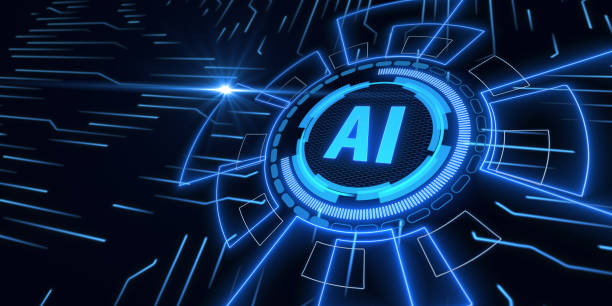
Artificial intelligence has a significant impact on many industries.
Some of the industries most affected by artificial intelligence include:
Healthcare:
- Disease Diagnosis
- New Drug Development
- Improved Treatment Methods
- Personalized Care Delivery
Transportation:
- Autonomous Vehicles
- Route Optimization
- Traffic Management
- Increased Safety
Financial Services:
- Fraud Detection
- Risk Assessment
- Capital Management
- Personalized Financial Services
Retail:
- Product Recommendations
- Price Optimization
- Inventory Management
- Personalized Customer Service
Manufacturing:
- Process Automation
- Supply Chain Optimization
- Quality Control
- Predictive Maintenance
Education:
- Personalized Learning Experiences
- Student Performance Assessment
- Educational Content Development
- Classroom Management
These industries are just examples of those benefiting from artificial intelligence.
As this technology advances, AI is expected to have an even greater impact on various industries, creating new opportunities for growth and innovation.
The career future of artificial intelligence will vary across different industries.
The career future of artificial intelligence is very bright in leading industries.
The Role of Governments and Organizations in Managing Changes Caused by Artificial Intelligence
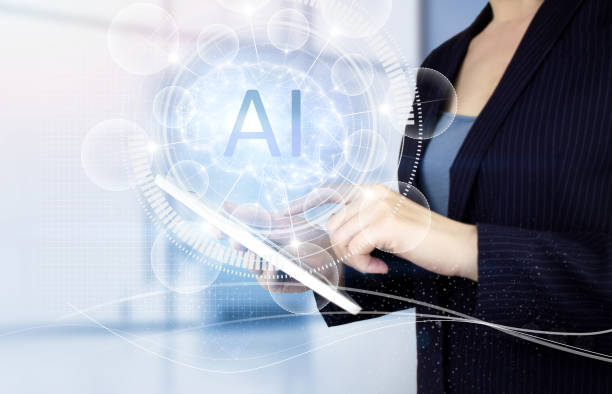
Governments and organizations play a crucial role in managing the changes brought about by artificial intelligence.
By adopting appropriate policies, they can leverage the opportunities presented by AI and mitigate its challenges.
Some actions that governments and organizations can take include:
Investing in Education and Research:
- Investing in education and research in artificial intelligence to develop a skilled workforce and foster new innovations.
Establishing Legal and Ethical Frameworks:
- Creating legal and ethical frameworks for the responsible and safe use of artificial intelligence.
Supporting Startups:
- Supporting startups in the field of artificial intelligence to encourage innovation and job creation.
Facilitating Workforce Transition:
- Facilitating the transition of the workforce from jobs at risk of automation to new occupations.
Ensuring Fair Access to Artificial Intelligence:
- Ensuring fair access to artificial intelligence for all individuals and communities.
The table below illustrates the role of governments and organizations in managing changes caused by artificial intelligence:
| Role | Description |
|---|---|
| Investment | Investing in education and research in artificial intelligence. |
| Legislation | Establishing legal and ethical frameworks for the use of artificial intelligence. |
| Support | Supporting startups and facilitating workforce transition. |
| Access | Ensuring fair access to artificial intelligence for everyone. |
Through cooperation and coordination, governments and organizations can utilize artificial intelligence as a positive force for progress and development.
The career future of artificial intelligence depends on sound government policies.
The career future of artificial intelligence requires collaboration among governments, organizations, and individuals.
Successful Case Studies in the Use of Artificial Intelligence
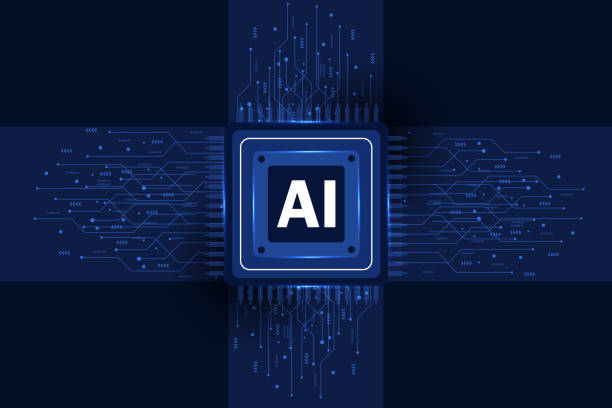
Many companies and organizations worldwide have successfully used artificial intelligence to improve their performance and create added value.
Here are a few examples of these case studies:
Netflix:
- Uses artificial intelligence for personalized movie and series recommendations to users.
- This has led to increased customer satisfaction and reduced churn.
Amazon:
- Uses artificial intelligence for supply chain optimization, demand forecasting, and customer service delivery.
- This has resulted in reduced costs and increased efficiency.
Google:
- Uses artificial intelligence to improve its search engine, language translation, and new product development.
- This has led to increased traffic and revenue.
IBM:
- Uses artificial intelligence to provide business solutions in various fields such as healthcare, financial services, and retail.
- This has resulted in increased sales and profitability.
Tesla:
- Uses artificial intelligence for the development of self-driving cars and the improvement of safety systems.
- This has led to increased safety and reduced accidents.
These case studies demonstrate that artificial intelligence can be a powerful tool for improving performance and creating added value across various industries.
The career future of artificial intelligence is accompanied by many success stories.
The career future of artificial intelligence depends on innovation and the intelligent use of this technology.
Challenges and Concerns Regarding the Future of AI Careers
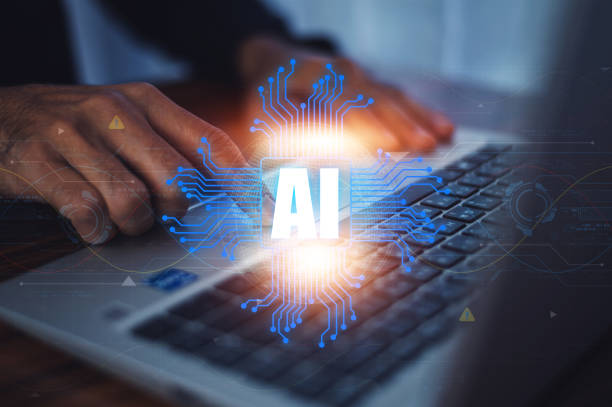
While artificial intelligence creates many opportunities for growth and innovation, there are also challenges and concerns regarding its career future:
Automation and Job Loss:
- One of the biggest concerns is automation and job loss.
Artificial intelligence can automate many repetitive and routine tasks, leading to a reduced need for human labor.
Inequality:
- Another concern is inequality.
Artificial intelligence can lead to increased disparities in income and wealth, as individuals with the skills required to work with AI will benefit more.
Privacy and Security:
- Artificial intelligence requires access to large volumes of data, which can raise concerns about privacy and security.
Ethics:
- Decisions made by artificial intelligence can have ethical implications.
For example, if an AI system discriminates in the hiring process, who will be responsible?
Dependency:
- Over-reliance on artificial intelligence can lead to a reduction in human skills and vulnerability to cyberattacks.
To address these challenges and concerns, governments, organizations, and individuals need to collaborate and adopt appropriate policies.
The career future of artificial intelligence faces challenges that must be overcome.
The career future of artificial intelligence requires a responsible and ethical approach.
Are you worried about losing customers because you don’t have a professional e-commerce website?
With e-commerce website design by Rasaweb, forget these worries!
✅ Significant increase in sales and conversion rates from visitors to customers
✅ Professional and user-friendly design that builds customer trust
⚡ Get a free consultation from Rasaweb
Possible Scenarios for the Future of AI Careers
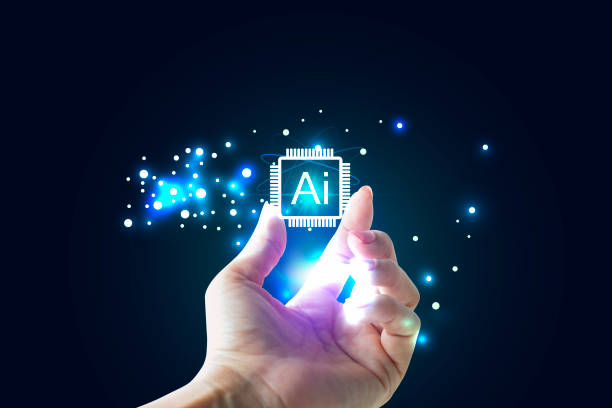
The career future of artificial intelligence is uncertain, but several possible scenarios can be considered:
Optimistic Scenario:
- In this scenario, artificial intelligence leads to increased productivity, the creation of new jobs, and an improved quality of life.
- Governments and organizations, by adopting appropriate policies, benefit from the opportunities offered by artificial intelligence and mitigate its challenges.
- Individuals, by learning new skills, prepare themselves to work in the age of artificial intelligence.
Pessimistic Scenario:
- In this scenario, artificial intelligence leads to widespread automation, job loss, and increased inequality.
- Governments and organizations fail to manage the changes brought about by artificial intelligence.
- Individuals struggle to adapt to the rapid changes resulting from artificial intelligence.
Realistic Scenario:
- In this scenario, artificial intelligence creates both opportunities and challenges.
- Governments and organizations, by adopting appropriate policies, partially benefit from the opportunities offered by artificial intelligence and mitigate its challenges.
- Individuals, by learning new skills, partially prepare themselves to work in the age of artificial intelligence.
Which scenario will materialize depends on the decisions and actions we take today.
The career future of artificial intelligence depends on our choices.
Let’s shape the career future of artificial intelligence with the right decisions.
Conclusion and Recommendations for a Career Future in the World of Artificial Intelligence
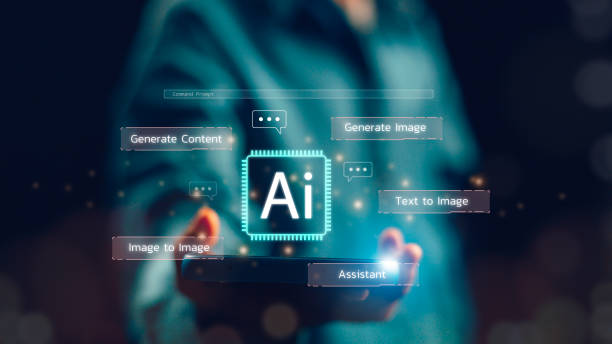
Artificial intelligence is a transformative technology that will have a profound impact on the job market and our lives.
The career future of artificial intelligence is accompanied by many opportunities and challenges.
To succeed in this new world, it is necessary to:
- Develop your skills.
- Gain experience.
- Network.
- Define your goals.
- Be flexible.
- Continuously update your knowledge.
Furthermore, governments and organizations need to adopt appropriate policies to benefit from the opportunities offered by artificial intelligence and mitigate its challenges.
The career future of artificial intelligence requires cooperation and coordination among governments, organizations, and individuals.
With preparation and planning, one can benefit from the opportunities presented by artificial intelligence and shape a bright future for oneself.
The career future of artificial intelligence belongs to those who are ready for change and learning.
Let’s grasp the career future of artificial intelligence.
Frequently Asked Questions
| Question | Answer |
|---|---|
| What impact will artificial intelligence have on the future job market? | Artificial intelligence will automate repetitive jobs, but at the same time, it will create new and more complex jobs in areas such as the development, maintenance, and training of AI systems. |
| Which jobs are most at risk of being replaced by artificial intelligence? | Jobs involving repetitive, rule-based tasks with low requirements for creativity or emotional intelligence, such as some manufacturing, data entry, and simple customer service roles, are most at risk. |
| What skills are essential for success in a career future with artificial intelligence? | Skills such as critical thinking, complex problem-solving, creativity, emotional intelligence, data literacy, the ability to work with AI, and lifelong learning are of high importance. |
| Will artificial intelligence lead to widespread unemployment? | Some jobs will disappear, but history has shown that new technologies, instead of causing widespread unemployment, reshape the job market and create new jobs. The need for adaptation and retraining is crucial. |
| What new job opportunities will emerge with the rise of artificial intelligence? | Jobs such as Machine Learning Engineer, Data Scientist, AI Ethicist, Human-AI Interaction Designer, and Digital Transformation Consultant are among the new opportunities. |
| What is the role of education in preparing for a career future with artificial intelligence? | Education should focus on developing soft skills, computational thinking, digital literacy, and the ability for continuous learning to prepare individuals for future changes. |
| How can I prepare myself for changes in the job market caused by artificial intelligence? | You can prepare yourself by learning new skills related to AI and data, strengthening soft skills, developing critical thinking and creativity, and adopting a habit of lifelong learning. |
| Will AI ethics become an important career field? | Yes, given growing concerns about biases, privacy, and automated decision-making in AI, the role of AI ethics specialists will become crucial to ensure its responsible development. |
| What is the importance of human-AI collaboration in the career future? | Human-AI collaboration, rather than competition, will shape the future of the job market. AI can be a tool to increase productivity and allow humans to focus on more complex and creative tasks. |
| Which industries will be most affected by artificial intelligence? | Almost all industries will be affected, but sectors such as healthcare, finance, transportation, manufacturing, education, and customer service are pioneers in AI adoption and transformation. |
And other services by Rasaweb Advertising Agency in the field of advertising
- Smart Link Building: A creative platform to improve customer behavior analysis using real data.
- Smart Digital Advertising: A combination of creativity and technology to increase sales through SEO-driven content strategy.
- Smart Social Media: A novel service to increase user engagement through SEO-driven content strategy.
- Smart Link Building: A creative platform to improve digital branding through Google Ads management.
- Smart UI/UX: A fast and efficient solution to attract customers by focusing on attractive user interface design.
And over hundreds of other services in internet advertising, advertising consultation, and organizational solutions
Internet Advertising | Advertising Strategy | Advertorial
Sources
AI Job Opportunities in IranChallenges of Analytical AIThe Future of AI and the Job MarketThe Impact of AI on Future Jobs
? Are you ready for your business to grow and shine in the digital world? Rasaweb Afarin Digital Marketing Agency, with its expertise and experience in Search Engine Optimization (SEO), smart social media management, and also personal website design, paves your way to reach the peaks of success. With innovative and creative solutions, we ensure a powerful and impactful presence for your brand.
📍 Tehran, Mirdamad Street, next to Bank Markazi, Kazeroun Jonoubi Alley, Ramin Alley No. 6


